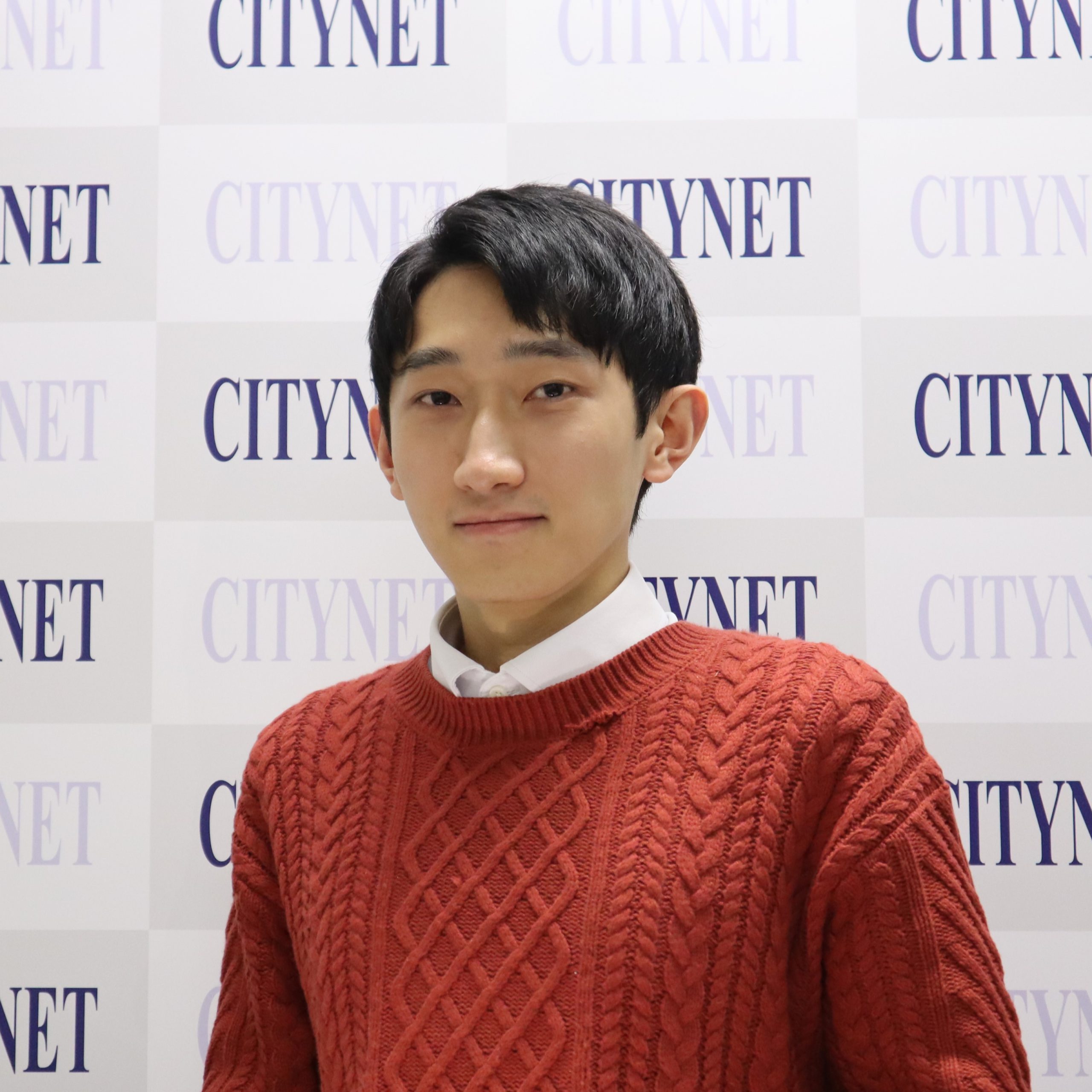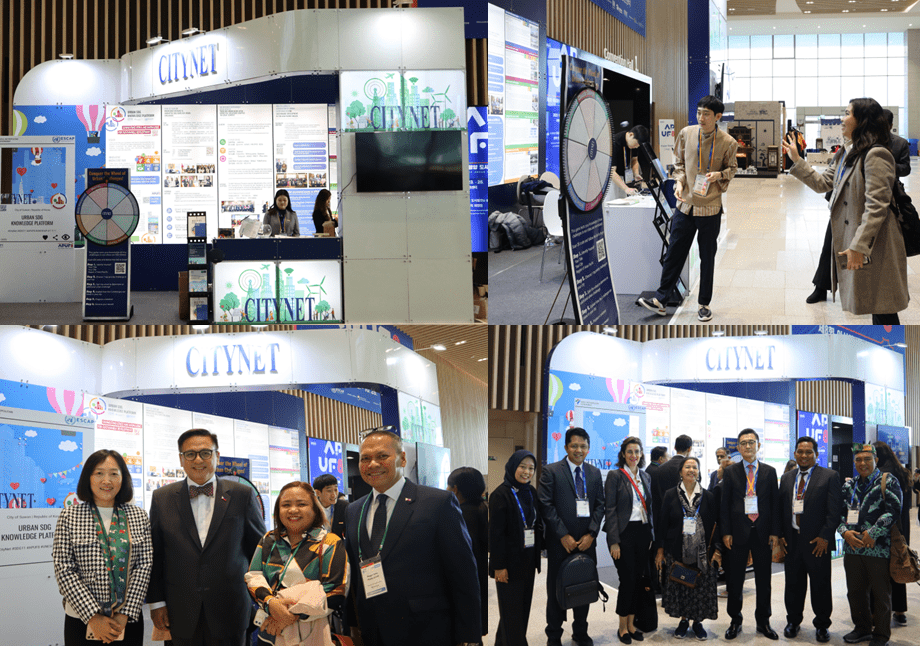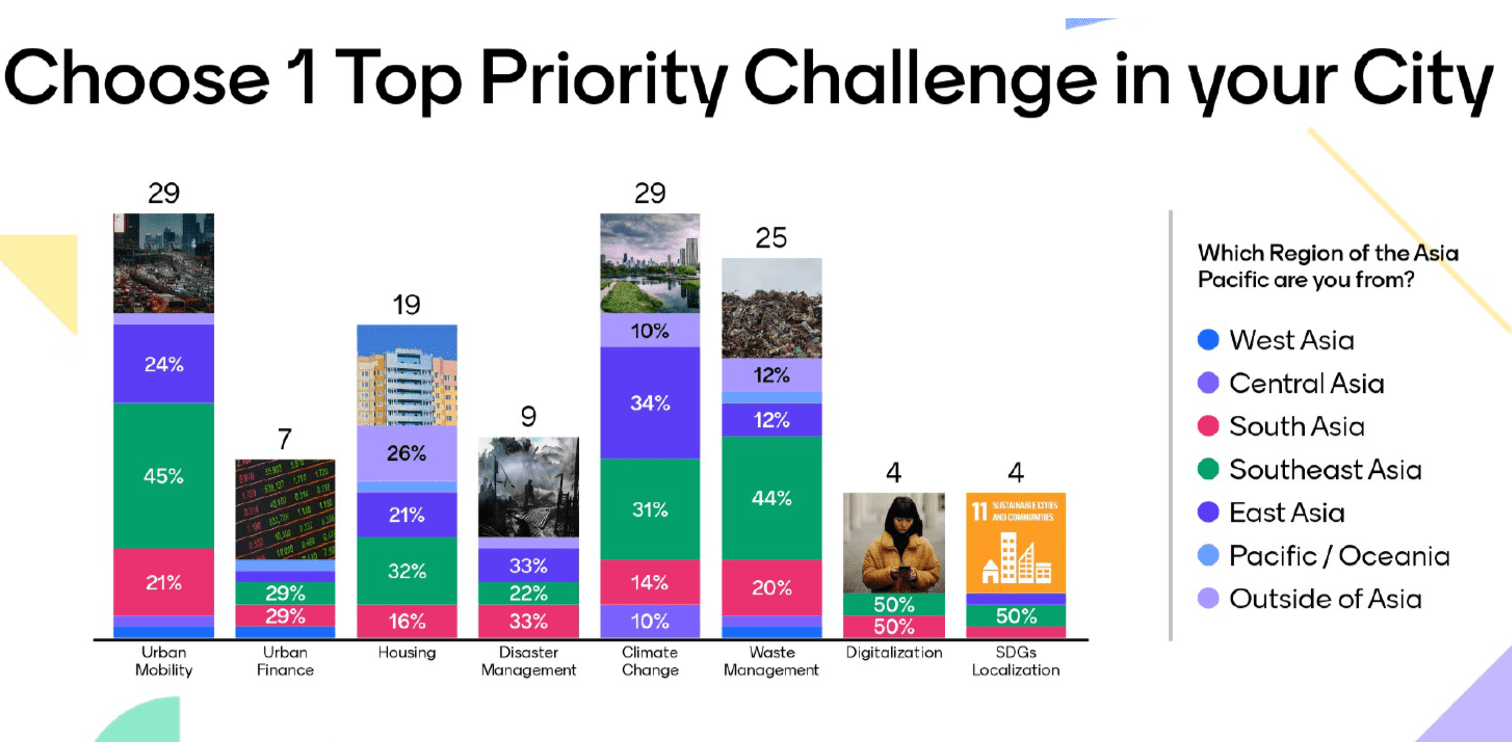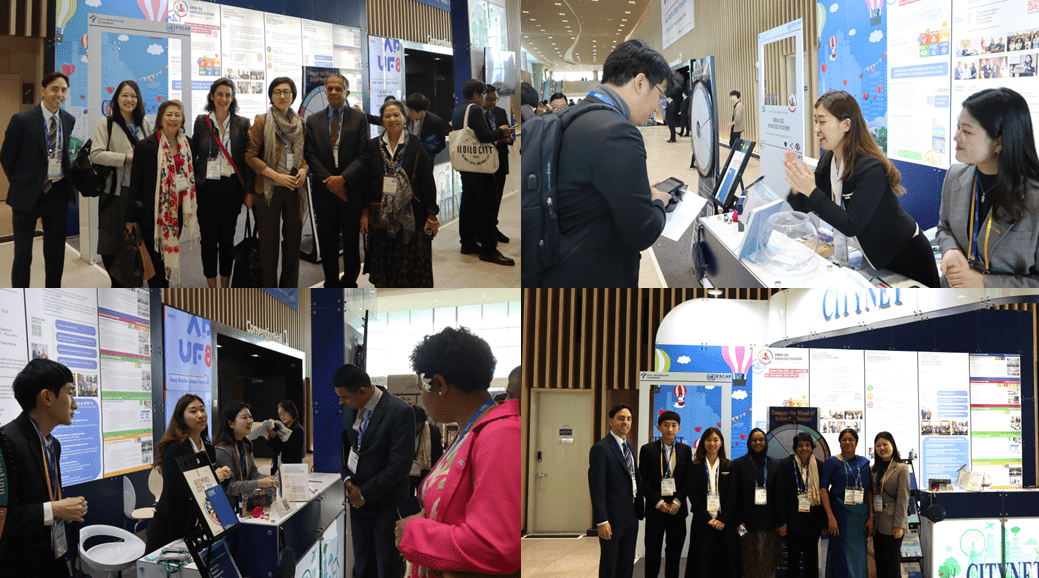The 8th Asia-Pacific Urban Forum (APUF-8), held from October 23 to 25, 2023, in Suwon City, Republic of Korea, aimed to facilitate the implementation of sustainable urban development for the pursuit of Sustainable Development Goals (SDGs) in the Asia-Pacific region. During APUF-8, the CityNet Secretariat organised a promotional booth as a centralised communication hub on urban challenges and innovative approaches to city-to-city cooperation and capacity building. The prominent location of the CityNet Booth ensured continuous interaction with a high volume of foot traffic and provided a comfortable environment for both presenters and visitors, facilitating prolonged conversations.
CityNet Secretariat arranged an engagement activity to encourage the active participation of attendees and raise awareness of the organisation’s mission, goals, and achievements. On the booth wall, visitors could grasp practical information regarding CityNet, the Urban SDG Knowledge Platform, and the five winning case studies of the 2nd CityNet-ESCAP SDG City Awards. Furthermore, visitors interested in becoming members of CityNet could easily access the “CityNet Membership Application Form” by scanning a QR code on the wall. The left side of the CityNet Booth featured a photo frame that mimicked the design of the Urban SDG Knowledge Platform’s case study thumbnails.
In the engagement activity, dubbed the “Wheel of Urban Challenges”, visitors gained further understanding of the interconnection between their cities and the urban challenges across the Asia-Pacific region. The idea was derived from the theme of the flagship publication of APUF-8 “Crisis Resilient Urban Futures for Asia and the Pacific” which emphasised the need for cities to tackle multiple interlinked challenges. The activity involved a total of six steps to evaluate knowledge on urban challenges. In the initial stage, participants were required to identify themselves as a stakeholder of urban development by divulging their job title, city name, and the Asia-Pacific region in which they reside. Subsequently, participants selected the top priority challenge in their city from the following options: Climate Change, Digitalization, Disaster Management, Waste Management, Housing, Urban Mobility, Urban Finance, and SDGs Localization. These topics were chosen based on CityNet’s Clusters, the 4 thematic areas of APUF-8, and housing, the focus of the Asia Pacific Housing Forum following APUF-8. The most thrilling aspect of the engagement activity was stage three where the participants selected a second urban challenge at random by throwing a velcro ball at the spinning roulette wheel. In stage four, participants needed to briefly explain about how these two challenges are linked to their city. Participants had to come up with a possible solution to those challenges in the last stage, and they received the reward at the end of the engagement activity.
The questionnaire elicited responses from more than 120 individuals, revealing Urban Mobility and Climate Change as among the most pressing urban challenges in the region, with Waste Management close behind. An expert in DRRM planning and research from Makati City, Philippines chose “Urban Finance” as a priority issue for their city and got “Disaster Management” as the second urban challenge. They explained that the two challenges are linked as “Disasters especially aggravated by climate change require serious investments on prevention and mitigation. These pre-disaster interventions necessitate huge urban financing from various sources.” Their proposed policy solution to the linked challenge was to “Harness capital market/private investments and engage innovative financing solutions from the community and other stakeholders.” Moreover, a professor from Kobe, Japan, picked “Disaster Management” as a top priority challenge in their city and gained “Housing” as the secondary urban challenge. He highlighted the interconnectedness of these challenges, describing that “Numerous elderly people live alone in their houses, and this results in increased vulnerability, particularly during emergencies or disasters.” He pointed out that safe housing and infrastructure are the essential elements to tackle the increased vulnerability among elderly populations and suggested retrofitting housing and disaster-resilient infrastructure to ensure accessibility and safety for elderly individuals.
Following the appointment of CityNet Secretary General Vijay Jagannathan to the UN Advisory Board of Eminent Persons for Zero Waste, the activity rewards consisted of zero-waste prizes, such as wooden toothbrushes, hemp scrubbers, and glass straws, targeted to encourage sustainable and eco-friendly behaviour by reducing waste among the participants. Throughout the activity, participants could build critical thinking, logical reasoning, and problem-solving skills while collaborating with diverse stakeholders to propose a feasible solution to the urban challenges.
This article was written by SDG Program Assistant Woobin Choi, who can be reached at pg.assistant1@citynet-ap.org.

Woobin Choi is an SDG Program Assistant at CityNet, responsible for the coordination of effective communication with key urban stakeholders and the management of the Urban SDG Knowledge Platform. Currently pursuing a bachelor’s degree in International Relations, he aspires to spearhead a pivotal role in sustainable urban development and pressing global challenges by leveraging his multifaceted academic background from Hiroshima and Kyoto, Japan, alongside his technical skills and trilingual language abilities. He can be reached at pg.assistant1@citynet-ap.org.





